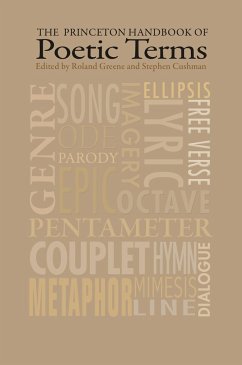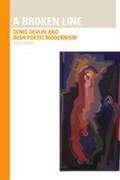Nicht lieferbar

Poetic Language
Theory and Practice from the Renaissance to the Present
The first study of poetic language from a historical and philosophical perspective In a series of 13 chapters, exemplary poems - by Walter Ralegh, John Milton, William Cowper, William Wordsworth, Gerard Manley Hopkins, Wallace Stevens, Ezra Pound, Frank O'Hara, Robert Creeley, W. S. Graham, Tom Raworth, Denise Riley and Thomas A. Clark - are read alongside theoretical discussions of poetic language. The discussions provide a jargon-free account of a wide range of historical and contemporary schools of thought about poetic language, and an organised, coherent critique of those schools (includin...
The first study of poetic language from a historical and philosophical perspective In a series of 13 chapters, exemplary poems - by Walter Ralegh, John Milton, William Cowper, William Wordsworth, Gerard Manley Hopkins, Wallace Stevens, Ezra Pound, Frank O'Hara, Robert Creeley, W. S. Graham, Tom Raworth, Denise Riley and Thomas A. Clark - are read alongside theoretical discussions of poetic language. The discussions provide a jargon-free account of a wide range of historical and contemporary schools of thought about poetic language, and an organised, coherent critique of those schools (including analytical philosophy, cognitive poetics, structuralism and post-structuralism). Via close readings of poems from 1600 to the present readers are taken through a diversity of styles including modernist, experimental and innovative poetries. Paired chapters within a chronological structure allow lecturers and students to approach the material in a variety of ways (by individual chapters, paired historical periods) that are appropriate to different courses. Key Features - Surveys a variety of linguistic and philosophical approaches to poetic language: analytical, cognitive, post-structuralist, pragmatic - Provides readings of complete poems and places those readings within the wider context of each poet's work - Combines theory and practice - Includes a Glossary, Notes on Poets and Further Reading Tom Jones teaches English at the University of St Andrews, specialising in eighteenth-century literature and philosophy, and poetic theory and practice. He is the author of Pope and Berkeley: The Language of Poetry and Philosophy (2005) and essays on Pope, Berkeley, eighteenth-century philosophies of language, and contemporary poetry and poetics. Cover image: Untitled, 1973 (c) Trisha Brown Cover design: [EUP logo] www.euppublishing.com ISBN 978-0-7486-5616-5 [please add within the barcode box, at the top] Barcode













